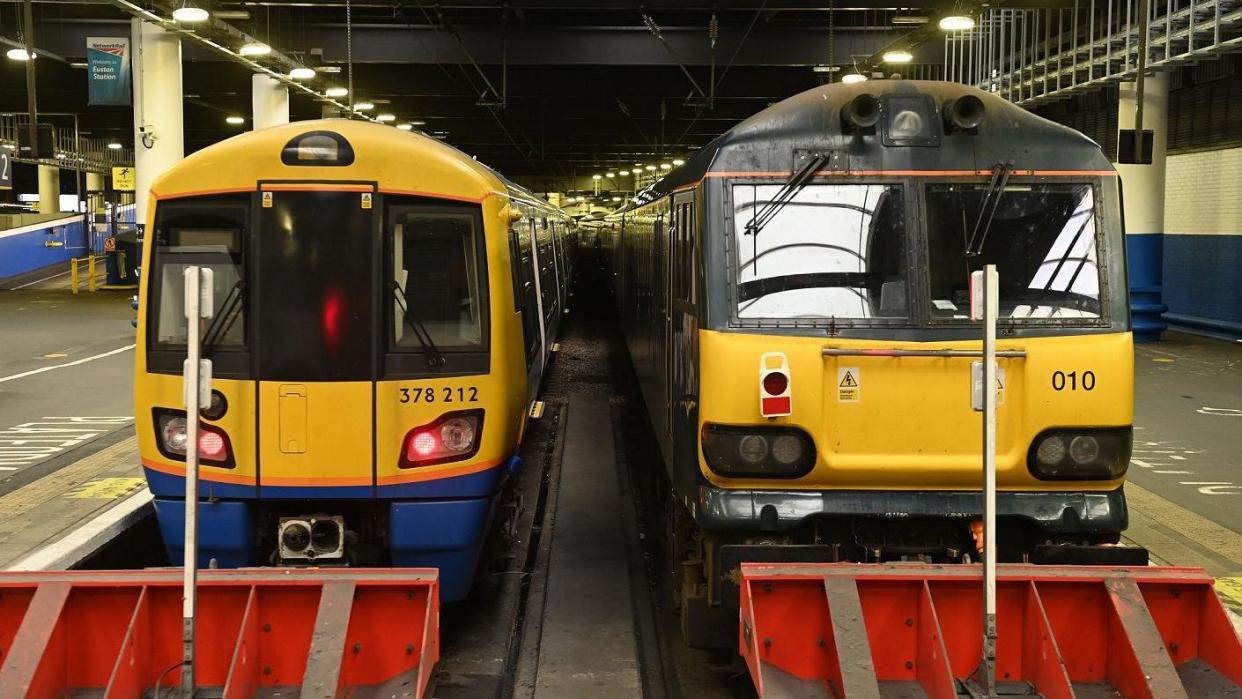Teenagers could help fill train driver shortage

Teenagers will be able to qualify to drive trains on Britain's railways under new proposals.
The government is asking for views on reducing the minimum age from 20 to 18, in a consultation running until 13 June.
The number of train drivers due to retire in the next five years has prompted concerns of a shortage. Their average age at the moment is 48.
The Department for Transport said the plan would "build resilience".
School leavers would be able to take up apprenticeships to become drivers.
Rail Minister Huw Merriman said the department wanted to "open the door for young people considering transport as a career, and this proposal could give school leavers a clear path into the sector".
"By boosting age diversity in the sector and attracting more drivers, we can help support reliable services while creating opportunities for more young people," he added.
The idea was welcomed by industry groups and the main train drivers' union, Aslef.
Ministers have repeatedly said they want operators to become less reliant on rest day working - overtime days - to fulfil schedules.
Aslef general secretary Mick Whelan said the union had always been in favour of lowering the age drivers can start training. He said it believed "there should be enough drivers to cover all the available shifts", and did not agree with reliance on rest day working and overtime.
Mr Whelan added: "Not only will [the plan] increase the number of drivers but we also believe that those at the pointy end of the train should reflect the communities they serve and that includes having young people in cabs".
The driver qualification process currently takes between one and two years.
Andy Bagnall of Rail Partners, the lobby group for private operators, said the new proposals "would meet a long-standing aspiration for the industry" and make working on the railways a more attractive career choice.
A recent report said the average train driver was 46 years old, male and white,
The figures, from the National Skills Academy for Rail (NSAR), said that only one in 10 drivers was non-white, with even fewer being women.
A long-running and bitter dispute between Aslef and 16 train companies, backed by the government, has led to repeated strikes since the summer of 2022.
After a year of impasse, a proposal to discuss how to re-open negotiations has been seen as a sign that progress towards a resolution could be on the way.
The Rail Delivery Group, which represents train operators, said the average annual salary of a train driver is about £60,000.

